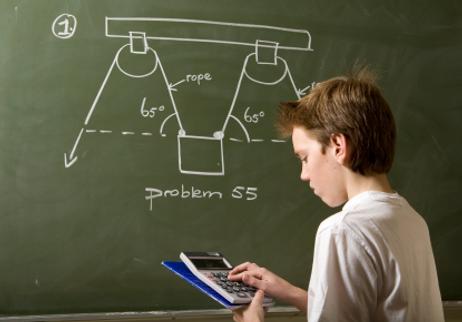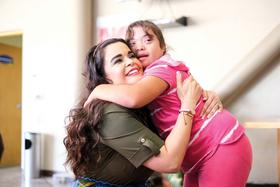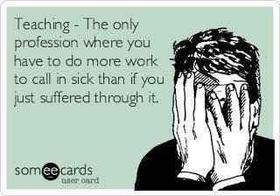As public schools are working to make classrooms fully inclusive, where all children are treated equally, many parents are concerned that their gifted child may not be faced with the appropriate educational environment that fosters challenging learning.
Carol Bainbridge, a board member of the Indiana Association for the Gifted, explains: ŌĆ£To be a gifted child is to demonstrate an exceptional talent in a particular area.ŌĆØ This exceptional talent includes high IQ levels and abilities that can be a predictor and indicator of adult achievement. As schools are implementing increasingly orthodox practices across curriculum areas, many gifted children may be left behind instead of pushed ahead.
Gifted Children
- What Qualifies as ŌĆ£GiftedŌĆØ?
There are various ranges of ŌĆ£gifted abilities,ŌĆØ ranging from ŌĆ£Mildly Gifted,ŌĆØ all the way to ŌĆ£Profoundly Gifted.ŌĆØ In a standard bell curve, most average learners fall between a range of 85 and 115, with 100 being the absolute norm. According to Carol Bainbridge, ŌĆ£the farther away from the absolute norm of 100 a child is, the greater the need for special educational accommodations, regardless of whether the distance is on the left or right of 100.ŌĆØ
- Lacking a Challenge
While gifted children may possess exceptional abilities, they are not always high achievers. As Bainbridge continues, ŌĆ£even when they don't achieve good grades, they tend to score high on achievement tests, most often in the 95-99 percentile range. They love to learn and their love of learning, good memories, and ability to learn quickly and easily enable them to succeed.ŌĆØ
While gifted children are able to learn easily and with greater ardor, they often do not excel if they lack a challenging and stimulating environment. If a gifted child loses the motivation to learn, ŌĆ£he or she may not do well in school, although achievement test scores will usually remain high.ŌĆØ
This video offers an overview of gifted and talented programs in public schools.
Public Schools, the Law, and Full Inclusion Classrooms
- Legal Mandates
A legal statute, known as No Child Left Behind, was reauthorized by Congress in the early 2000s, forcing teachers and public schools to implement ŌĆ£full inclusionŌĆØ classrooms, where students of all levels and abilities are taught the same curriculum, the same lessons, and are often given the same tests.
While special needs and struggling students are provided with extra support (through help rooms, accommodations with testing, etc.), the same accommodations are not being made for gifted children. As a result, many gifted children lack an interest in school when their desire to learn is naturally quite strong.
According to Susan Goodkin of the Washington Post, No Child Left Behind is causing many parents to flee public schools because ŌĆ£the act pushes teachers to ignore high-ability students through its exclusive focus on bringing students to minimum proficiency. Worse than this benign neglect, No Child forces a fundamental educational approach so inappropriate for high-ability students that it destroys their interest in learning, as school becomes an endless chain of basic lessons aimed at low-performing students.ŌĆØ
- Implications of the Law
While problems have been predicted since its early reauthorization, schools, and teachers have little power to change the laws that are forcing them to operate schools in this manner. As the Wall Street Journal further supports, since 2003, ŌĆ£schools were shifting their focus overwhelmingly toward low achievers.ŌĆØ
For example, as schools are now mandated to bring all students to basic proficiency, teachers are often forced to ŌĆ£emphasize incessant drilling of rudimentary facts and teach that there is one ŌĆśrightŌĆÖ way to solve even higher-order problems. Yet one of the clearest markers of a nimble math mind is the ability to see novel approaches and shortcuts to attacking such problems.ŌĆØ Ultimately, the creativity and the more interesting elements of math are left behind, as concepts of high-order thinking are forced to the sidelines because schools must bring all struggling students up to the passing bar. The saddest result of this is that almost all studentsŌĆögifted and otherwiseŌĆöare ŌĆ£frustrated and bored by simplistic drills, many come to hate math.ŌĆØ
This video offers an overview of teaching gifted students.
What Parents Can Do
- Looking for a New Option
While No Child Left Behind may be assisting students who are struggling to meet standards, the mandate is certainly leaving behind students who desire a more challenging and critical educational experience. This law is causing many parents to abandon public schools and embrace private schooling instead. The biggest problem with this, of course, is the high costs of private schools.
- Working With Public Schools for Success
As parents seek to support their gifted child in an educationally supportive environment, communication with teachers and extra-curricular support is a strong key to success. Since many teachersŌĆÖ hands are legally tied, making them unable, in some cases, to abandon their rudimentary practices in the classroom, teachers are often much more able to provide more challenging assistance and help if a parent communicates openly and early in the educational process.
With a communicated plan, teachers can implement small changes into a gifted childŌĆÖs assignments, making personally appropriate accommodations to challenge his/her thinking further. Also, parents can look into educational opportunities outside of school, such as academic clubs, private tutoring, or other realms of study that are more cost-effective than private schools but are still engaging and effective.
Also, as Geoffrey Jones of Eric Digest further supports, the steadily rising implementation of technology in public schools is also providing greater challenges for gifted children: ŌĆ£Gifted students are benefiting from increased use of computers because their special needs are being met through informed use of technology.ŌĆØ
While legal mandates often inhibit the potential opportunities for gifted children, the new innovations in computers and technological tools are often acting as supplements for added intellectual stimulation. While public schools may not be able to provide gifted children with a constant level of appropriately challenging material, teachers, parents, mentors, clubs, and non-school opportunities can still collaborate to team up for an action plan of success.
Questions? Contact us on Facebook. @publicschoolservice














